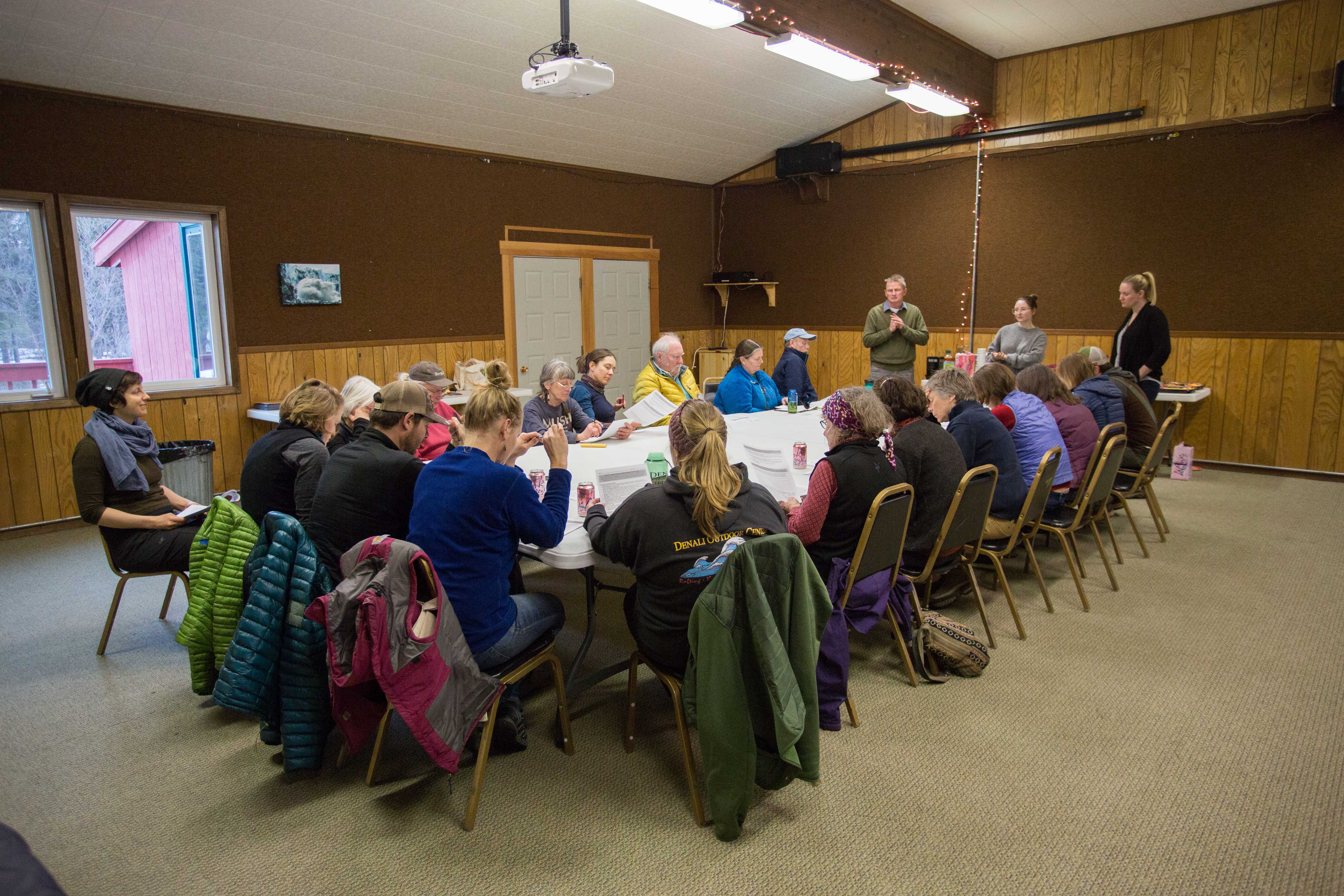

The purpose of the reflection period and integration of project outcomes is to continually disseminate findings from this research to residents, businesses, government agencies, scientists, and other relevant decision-makers who are shaping the future of protected areas, those in the Denali region. In turn, the research team is building knowledge of how residents are discussing and reacting to pressures related to rapid social, economic, and landscape change, and this knowledge is being reported back to stakeholders. This cyclical process of co-creation is occurring throughout the project. The medium for reflection is taking a variety of forms, particularly through webinars, in-depth discussions with the local executive committee, and reports provided to decision-makers. The reflection period will culminate in a film about communities in the Denali region, as well as wrap-up workshops at the end of the project. These workshops are being framed as spaces for civic discovery whereby residents become aware of the diverse values for places that they do (and do not) share with others in the region. They are encouraged to recognize potential opportunities for growth in ways that take advantage of shared thought, directed actions and channeled support for preserving the desired character of places.
All previous phases of this project are instrumental in supporting this building block. The mixed-methods databases from this project provide the empirical basis for engaging and reflecting on lessons learned from the research process. Existing relationships across an array of stakeholders is also important for encouraging participation and maximizing impacts that emerge from the study.
Major lessons learned throughout the project include: (1) Trust building is an ever-present set of actions that needs continual attention. (2) There is a shift towards replacing the dichotomy of use versus preservation, by the complexity of environmental sustainability, industrial tourism, and landscape change. (3) Charting a course for inclusive conservation will require understanding processes that reduce tensions across stakeholder groups. (4) Moving away from generalized conflict, to clarify specific points of conflict and appreciate points of agreement.